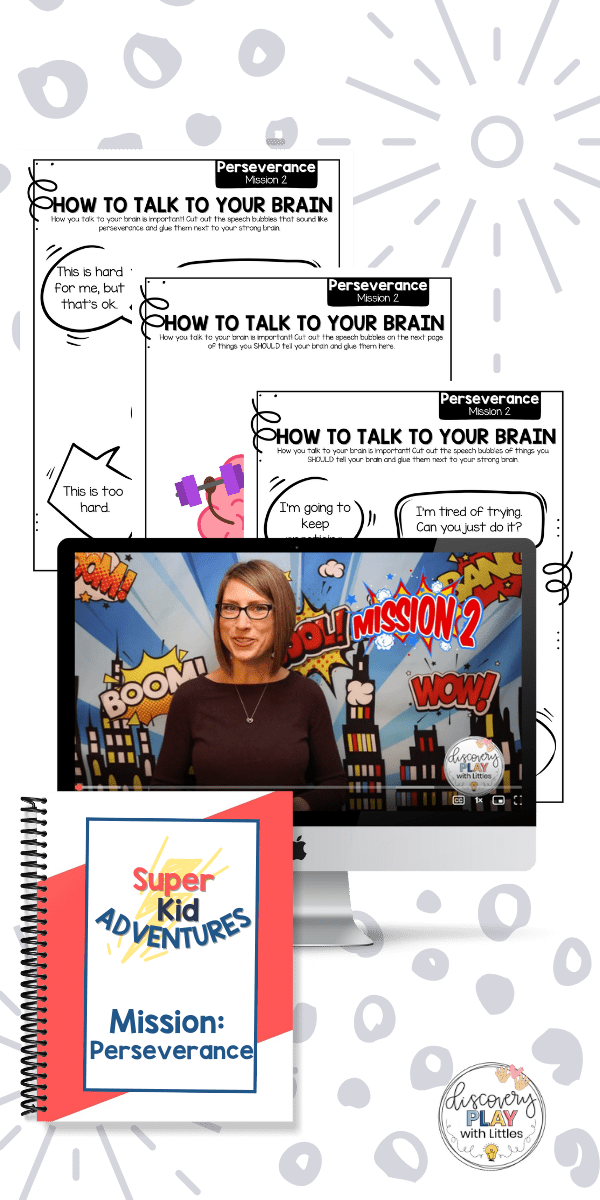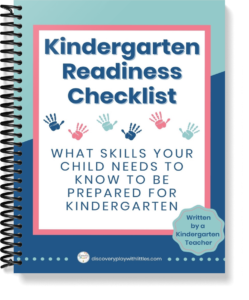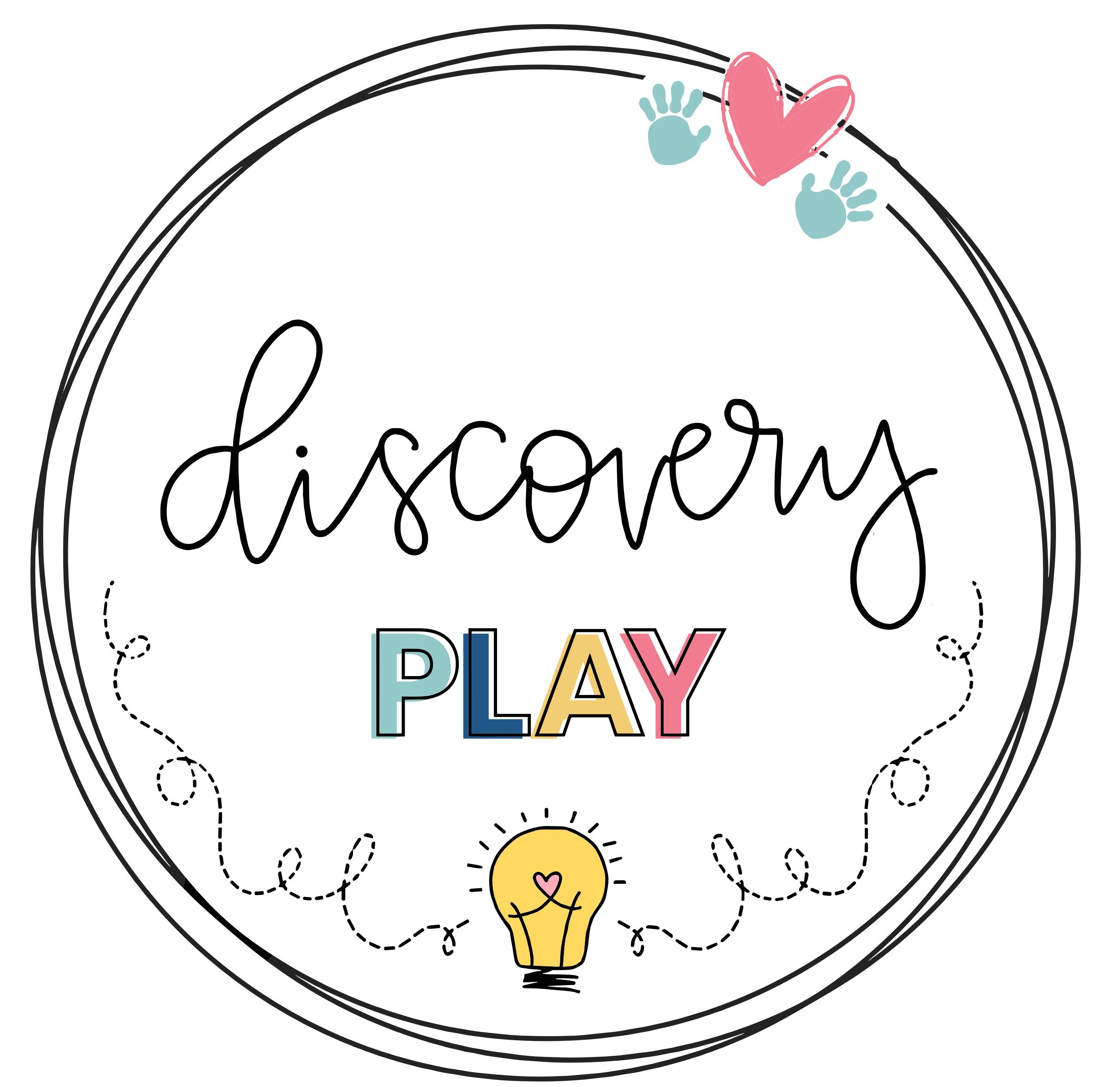We were at carpet time, and I looked up and sighed. Jack was pushing his neighbor. Again. His hands were always on someone else.
Our story was finished, so after giving simple instructions, I called them by row to head back to their seats for our activity. Jack was walking so close to his friend that she tripped. “Ow!” She yelled, picked herself up, gave Jack a dirty look, and went to her table.
The thing about Jack was that he wasn’t intentionally hurting anyone. He just didn’t understand personal space. The problem was that other kids didn’t want to be around him because they were constantly annoyed with his lack of social skills.
Kindergarteners are forgiving of these types of behavior, but these behaviors are difficult to stop, and first and second graders aren’t so forgiving.
Kids don’t want to be around others who aren’t kind to them. It’s important to prepare your child socially for kindergarten, so your kiddo can make, and keep friends.

The Most Important Way to Prepare Your Child for Kindergarten…
- The first thing you can do it talk about kindness from a very young age. Make your child aware of how other people are feeling! Do this by telling them how others make you feel good, or just by pointing out when someone does something kind.
- Your child is learning how to treat others by how they treat YOU. You may love to roughhouse with your kiddo. They might run into you when they are angry, or hit you out of frustration. Those things won’t hurt you, but they are learning that ‘this is how we treat people.’ Just give a gentle reminder before roughhousing, “Remember buddy, this is only a way you play with Daddy. We don’t play like this at school, you could hurt somebody.” Don’t let your child hit/run into you out of frustration.
- Take Turns: Always think about how another child will feel if treated the way your child is treating you. If your kiddo takes a toy out of your hands, it’s not a big deal to you, but it will be to another child. Start teaching your child to ask for a toy they want and how to take turns.
- Discuss how their actions made you feel. “Ow! That hurt me when you kicked me and made me feel sad! What would have been a better way to show that you are sad?”
- Read! There are hundreds of books that talk about kindness, teach kindness, or model kindness. Stop while you are reading and ask some questions:
- How did {that action} make the {character} feel?
- How would YOU feel if that happened to you?
- What should have the {character} done?
- What would have been a kinder choice?

Are you tired of hearing “It’s TOO HARD!” followed by a meltdown?
Using this one simple phrase you’ll get in this powerful lesson, you’ll not only be able to help your kiddo not give up but you’ll:
>Activate their superpower of perseverance so that they can turn around a meltdown and keep trying
>Inspire them to use perseverance…even when it’s hard
>Teach them to recognize the warning signs of giving up, and how to turn it around by taking control of their choices.
Grab your powerful FREE video lesson to teach your kiddo one of the most powerful keys to perseverance.
Practice Listening Skills
Start giving your child two-step directions. Make sure you have their full attention, get down at their level, and give them two things to do. “First, put the forks on the table, and then go get some napkins, please.”
Teachers often tell kids to do several things at once. Your child will have the advantage if they have already been practicing listening carefully, “holding those tasks in their head”, and completing each one.
This Impacts Your Child’s Ability to Focus
Your child will be expected to sit and listen for 10+ minutes. We do move around a lot in kindergarten, but kids are expected to sit and listen. Practice this at home while reading a story.
Screen time also has an enormous impact on a child’s ability to focus. Too much screen time is not good for developing brains. The American Association of Pediatrics recommends less than two hours a day.
Too much screen time hinders their opportunities to interact with other people. Interacting with others is how we build social skills. If a child has spent too much time in front of a screen, they aren’t sure how to interact with their peers and often have difficulty building friendships.
When children start kindergarten, if they are used to sitting at home for hours in front of a screen, they have an extremely difficult time focusing. No matter how engaging I am as a teacher, how interesting our story is, or what activity we are doing, I cannot compete with lights flashing and that little dopamine that your child gets every three seconds when they earn coins or are told “good job” by the game they are playing.
It’s more beneficial for them to be playing with blocks, train sets, or looking at books.
Have you seen the brain scans of preschoolers who spend a significant amount of time on screens vs. the brain scans of preschoolers who are read to? It is fascinating! The kiddos who spend time with a lot of screen time brains’ are underdeveloped in certain areas, and the ones who are read to show strong neurological pathways.
Yes, this even includes screen time on “learning” apps. Your child will learn more by looking at good books or playing outside.

Preparing Your Child for Kindergarten Can Include Bonding Time
Board games are an amazing way to strengthen your bond with your child. Not only is a lot of math worked into games, but games teach thinking strategically, taking turns, problem-solving, thinking ahead, respecting others, and being a good friend.
All of this is wrapped into a special time with your child that will strengthen your relationship and fill your child’s emotional bank. When playing board games, you are focused on your child. Your phone is put down, you aren’t watching TV, it’s special time together. Even a few minutes of intentional time together a day can make a tremendous difference in your relationship with your child.
If we are playing a game, I don’t care if I win. I am more focused on spending time together. I could just let him win, and sometimes that’s ok, but they also need to have experience being a good sport while losing.
I’ll never forget Jeremy. He was athletic and smart. On the outside, he tried to look like he had it all (even in kindergarten this was important to him). If he wasn’t first in anything he would get mad.
He did whatever it took to be first. He would push kids out of the way on the way to line up, cheat at games so he could win, and even say mean things to others to make himself feel like he was better than them.
If he ever wasn’t first, it sent a message straight to his heart. He felt that he wasn’t good enough if he wasn’t the best at something. What will this turn into as he grows? In high school when he doesn’t make the team, what will that do to his self-esteem? He had a difficult time making friends because he didn’t know how to be a friend, he was too focused on winning at everything.
Experience in being a happy loser is crucial to your child’s friendships. The most important thing is they got to play the game, spend time with people they love, and have fun.
Games for 2 to 4-Year-Olds
As an Amazon Associate, I earn from qualifying purchases at no additional cost to you.
- Let’s Go Fishin’: This game is recommended for ages 4 and up, but it is my 2-year-old son’s favorite. While playing it, we work on fine motor skills, hand-eye coordination, colors, counting and taking turns. This is an easy game to play as long as he is interested, and we just put it away when his attention runs out!
- Roll & Play by Thinkfun: This is an amazing game! While playing this game, we work on colors, counting, gross motor skills, following directions, image/word recognition, and taking turns. I love this game because it works with any number of players and can go as long or short as you want.
- Snug as a Bug in a Rug: While playing, you can work on colors, numbers, shapes, counting, matching, the concept of big and little, and working together. This is a great game because it is a cooperative and matching game. There are 3 levels of play so the game grows with your child.
- Feed the Woozle: While playing, you work on body awareness, fine and gross motor skills, counting, taking turns, rolling a die, spinning a spinner, and working cooperatively. This also has 3 different levels of play to grow with your child!
Games for 4-6 Year Olds
You will notice 4-6-year-olds like many of the games they used to play when they were younger. To make it more challenging, have them draw a card before their turn. Depending on what you are working on, you can make a deck of cards to work on letter recognition, numbers, shapes, colors, rhyming (write a word or draw a picture and they have to tell you a word that rhymes with what is on the card), CVC words (cat, can, tap, man…), addition, subtraction… anything they are currently learning!
As an Amazon Associate, I earn from qualifying purchases at no additional cost to you.
- Sneaky Squirrel Game: This focuses on fine motor skills, colors, hand-eye coordination, pre-handwriting skills, social skills, turn-taking, memory skills, attention skills, sorting, counting. This one is a favorite among Kindergarteners!
- Let’s Go Fishin’: My kindergarteners STILL love this game! To make it more challenging, have them draw a card before their turn.
- Guess Who! This is a great game to play that gets their brains thinking and focuses on their questioning skills.
- Candy Land: Add those cards before their turn to practice what they are learning. This also practices colors, turn-taking, social skills, and attention skills. My kindergarteners LOVE this game!
Jack and Jeremy both struggled to keep friends throughout the entire year, and through first grade. They struggled to understand how others were feeling so they constantly did things that annoyed their peers. With a little thoughtful guidance, it’s easy to avoid this struggle.
When thinking about preparing your child for kindergarten, there is so much to think about. Just remember, your child should be treating you as you would like them to treat their friends.
Grab Your Kindergarten Readiness Checklist
Preparing your child for kindergarten is like running a race, without knowing where the finish line is. Want to know exactly what you need to do to prepare your child for kindergarten? Grab our free Kindergarten Readiness Checklist.

Want More?
If you liked this, you’ll love:
- Want Your Child to Thrive in Kindergarten? Do These 7 Things Now
- The Most Important Way to Prepare Your Child for Kindergarten
- Simple Ways to Strengthen Your Child’s Fine Motor Skills
Your Turn
What are some ways you are preparing your child socially for kindergarten?

